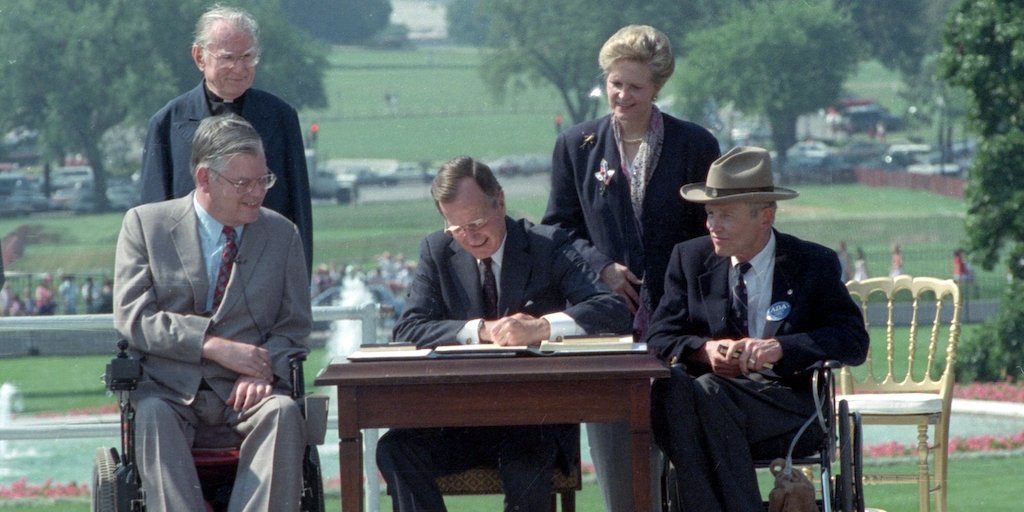
George H.W. Bush signs the ADA into law.
Almost everyone has seen a different, more prosperous world because of the ADA. 33 years in, we know this journey is long and not yet over. Inaccessible programs and businesses still exist. People with disabilities still languish in congregate care settings for lack of funding for home-based programs. The employment rate of people with disabilities still lags far beyond our non-disabled peers, even in this era of full employment. Below, read reflections from our Policy team about what the ADA means to them.
“The ADA is a representation of the willingness of people with disabilities to seek justice for themselves and for those who came after them. Without those people willing to painstakingly push for the passage of the ADA, I would not have the privilege to be employed and do the work we do here at RespectAbility. For a visually impaired person growing up with the rights I had because people before me were willing to fight, the ADA is a reminder that I not only have the honor of pushing forward the work, but I have the responsibility to continue to build upon that work.” Rostom Dadian, Policy Associate [continue reading…]


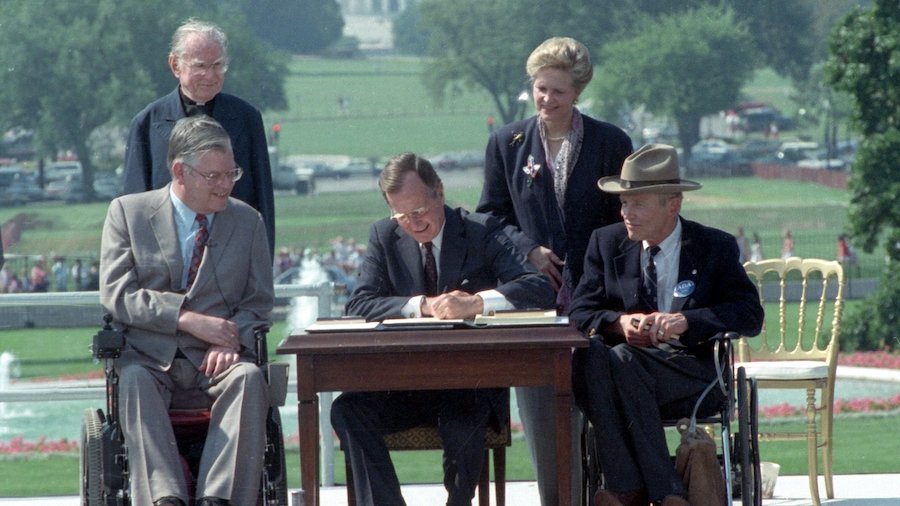
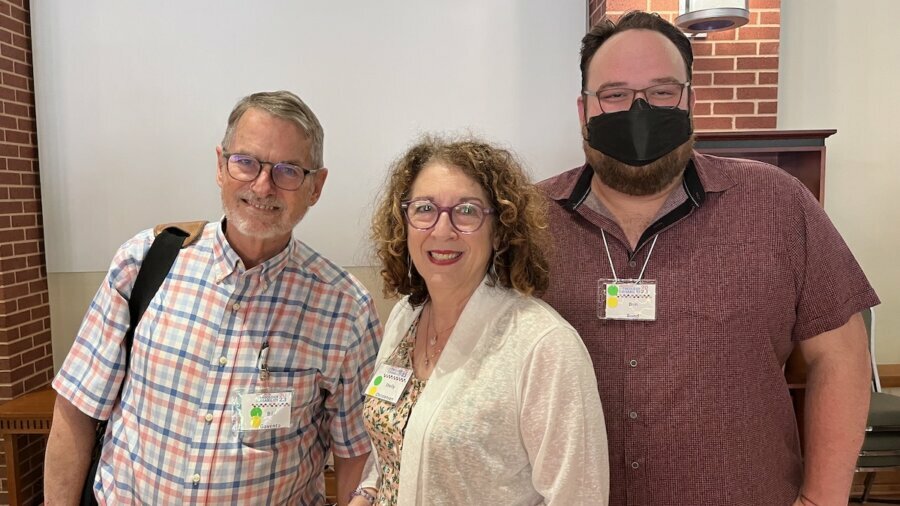
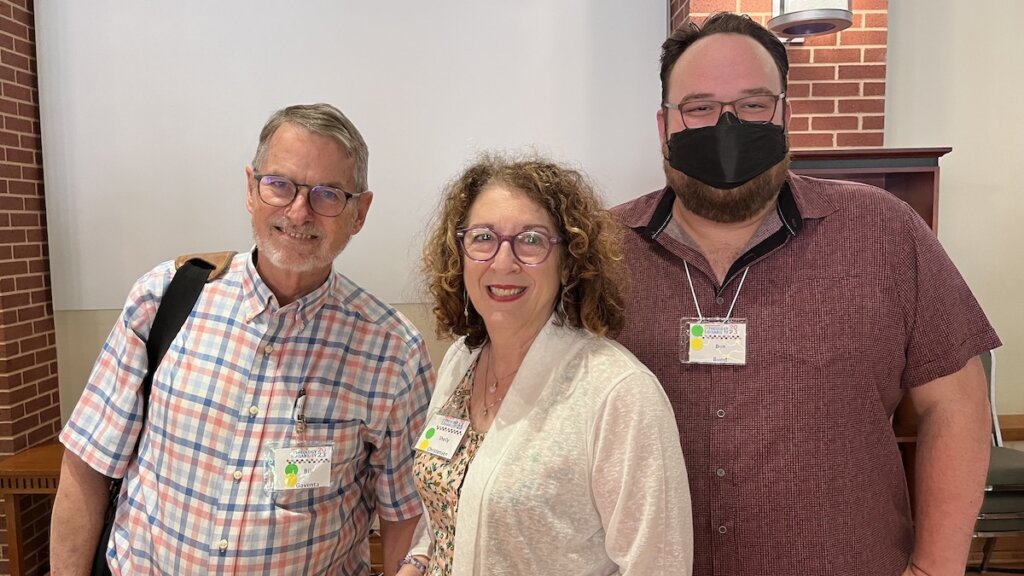 The Faith Inclusion and Belonging Team traveled to Waco, TX to participate in the Institute on Theology and Disability at Truett Seminary at Baylor University at the end of June. Founded in 2010 by RespectAbility board member, Bill Gaventa, the Institute annually gathers theologians, researchers, thought leaders, practitioners, and clergy to learn from each other.
The Faith Inclusion and Belonging Team traveled to Waco, TX to participate in the Institute on Theology and Disability at Truett Seminary at Baylor University at the end of June. Founded in 2010 by RespectAbility board member, Bill Gaventa, the Institute annually gathers theologians, researchers, thought leaders, practitioners, and clergy to learn from each other.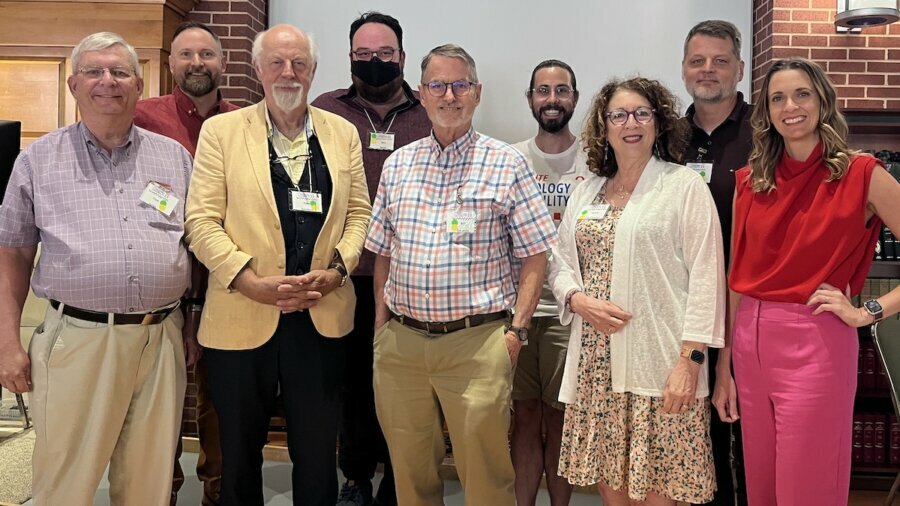
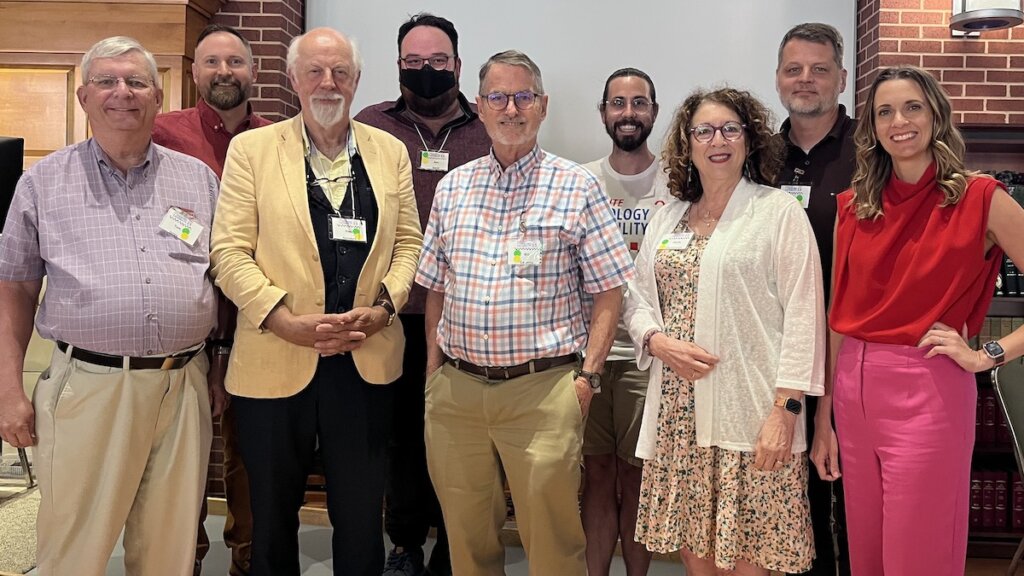 The disability community is built upon mutual flourishing. We know that our survival depends on each of us caring for one another in collective solidarity. As a disabled person I often feel quite lonely in my experience of disability. It can be a solitary endeavor to lie alone in your sick bed for days, weeks, and months at a time. One can be in a room full of people and feel alone trying to squeeze your disability into a box of normativity that helps others feel “comfortable” around you. We try to navigate these challenges the best that we can, but the social and physical isolation is exhausting.
The disability community is built upon mutual flourishing. We know that our survival depends on each of us caring for one another in collective solidarity. As a disabled person I often feel quite lonely in my experience of disability. It can be a solitary endeavor to lie alone in your sick bed for days, weeks, and months at a time. One can be in a room full of people and feel alone trying to squeeze your disability into a box of normativity that helps others feel “comfortable” around you. We try to navigate these challenges the best that we can, but the social and physical isolation is exhausting.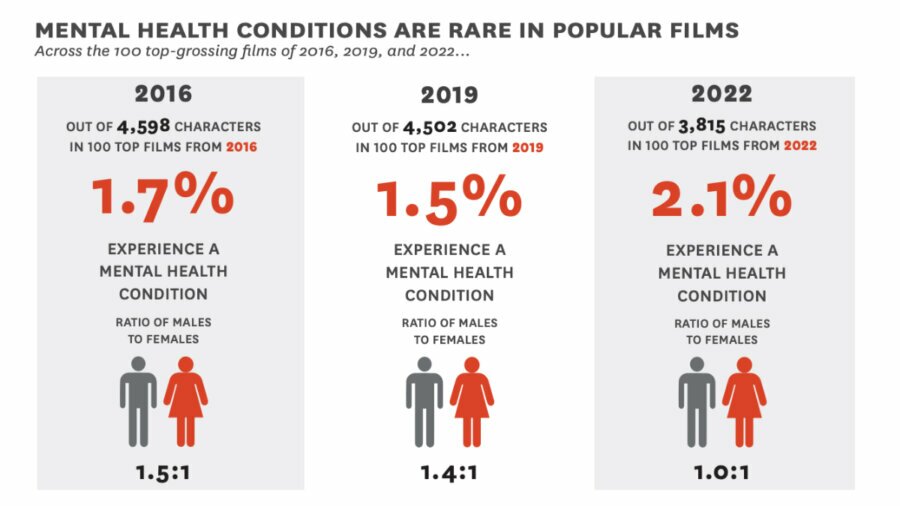
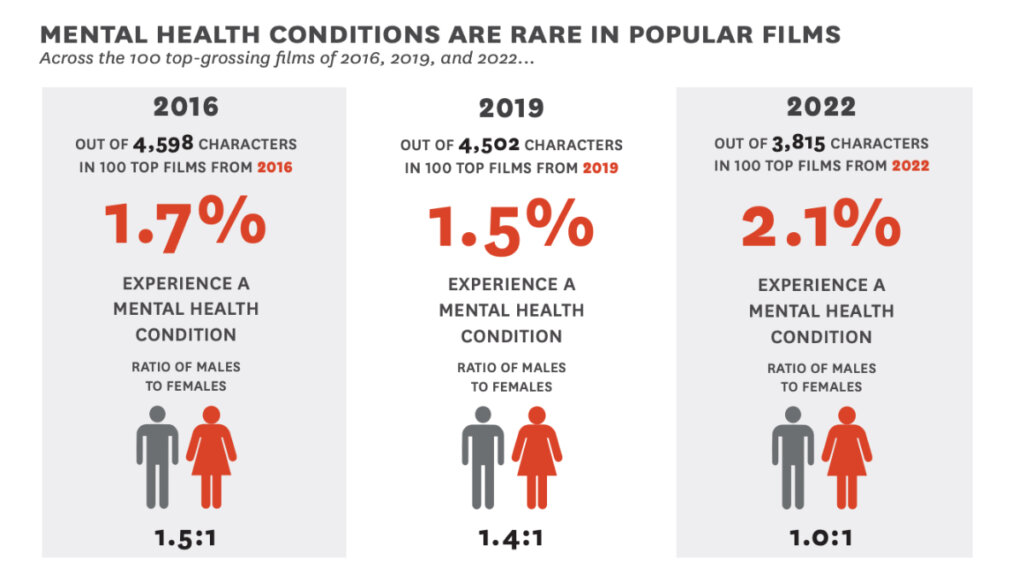 Just 2.1% of characters in the top 100 films in 2022 experience a mental health condition including addiction (28 characters), anxiety/PTSD (24), mood disorder (21), suicide (14), significant disturbance in thinking (8), and obsessive-compulsive disorder (2). Some characters presented with more than one mental health condition. This representation shows little growth since 2019 (1.5%) and 2016 (1.7%).
Just 2.1% of characters in the top 100 films in 2022 experience a mental health condition including addiction (28 characters), anxiety/PTSD (24), mood disorder (21), suicide (14), significant disturbance in thinking (8), and obsessive-compulsive disorder (2). Some characters presented with more than one mental health condition. This representation shows little growth since 2019 (1.5%) and 2016 (1.7%).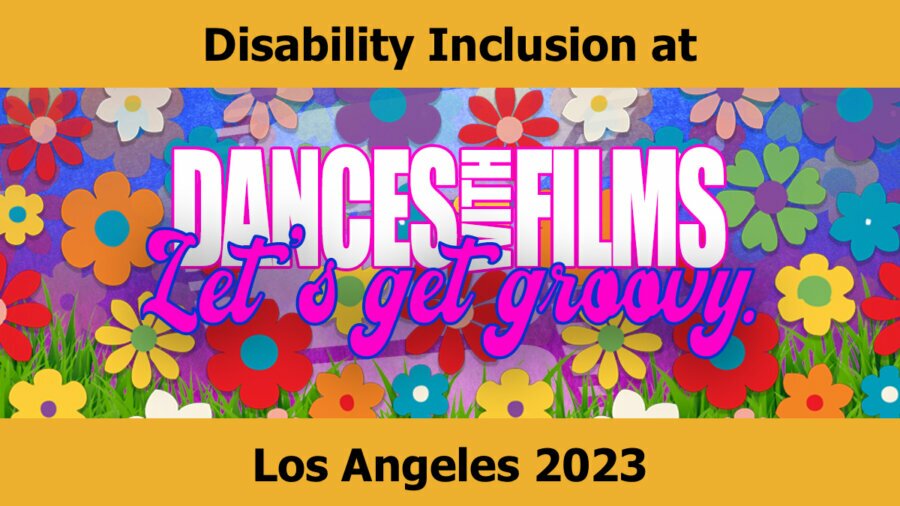
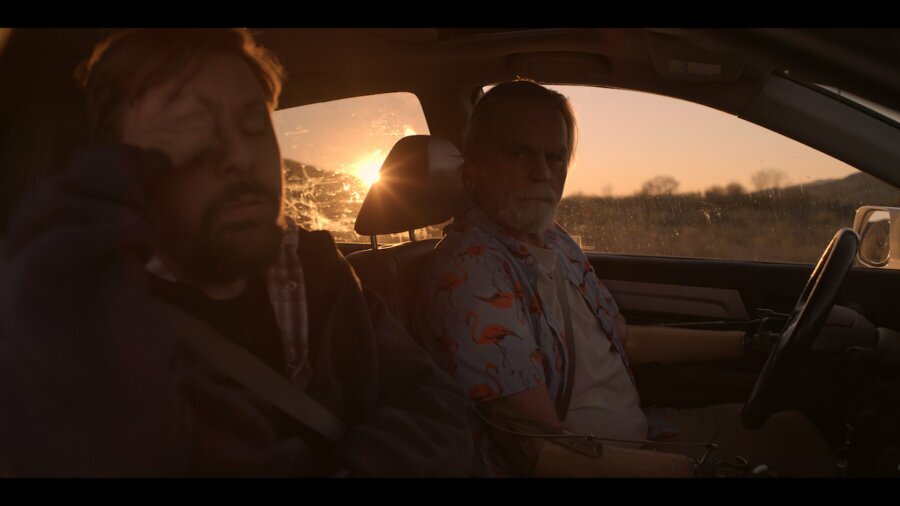
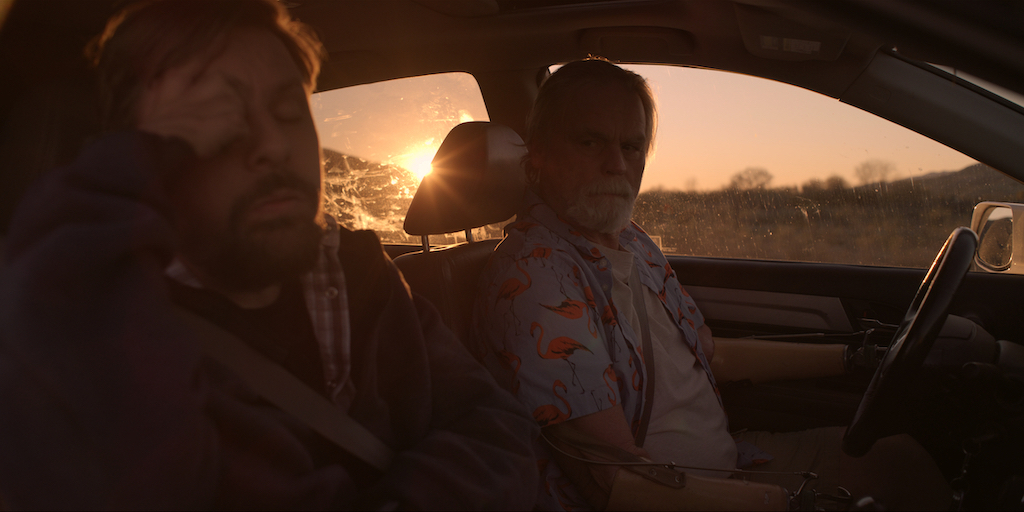 Fall down seven times, get up eight. On June 29th, 2023, the indie feature Daruma had its world premiere through Dances with Films Film Festival to a sold out crowd at the illustrious TCL Chinese Theatre.
Fall down seven times, get up eight. On June 29th, 2023, the indie feature Daruma had its world premiere through Dances with Films Film Festival to a sold out crowd at the illustrious TCL Chinese Theatre.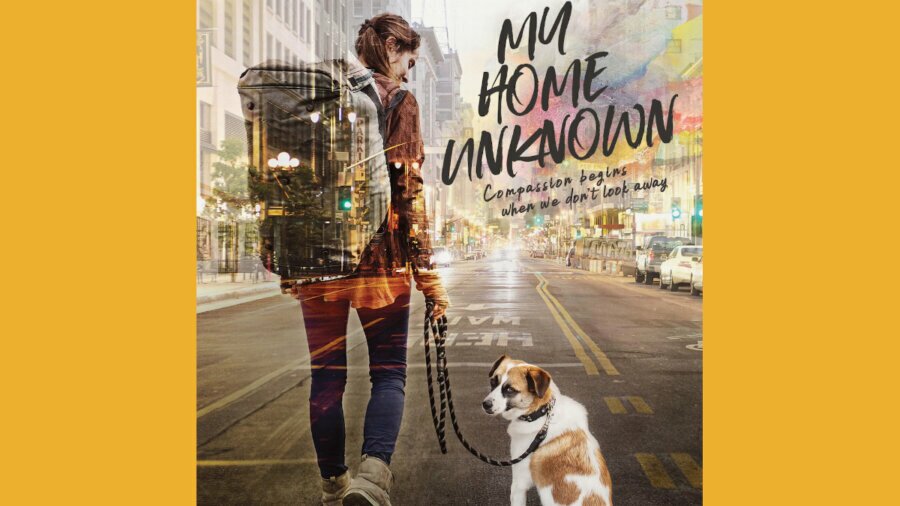
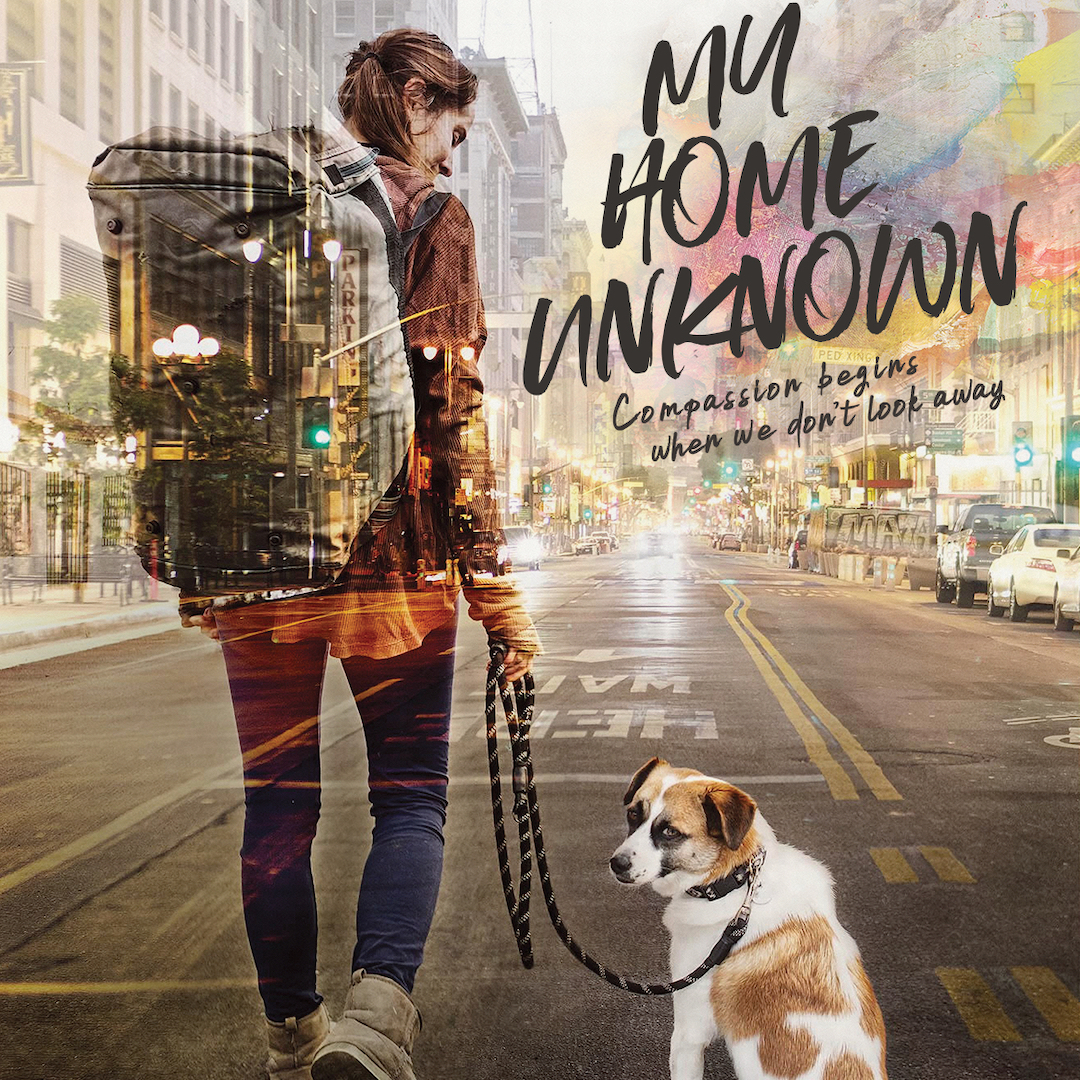 A collective groan could be heard across the world throughout the pandemic. COVID disrupted everyone’s lives and intensified inequalities. Among those hit hardest by the disease are people with disabilities, who are
A collective groan could be heard across the world throughout the pandemic. COVID disrupted everyone’s lives and intensified inequalities. Among those hit hardest by the disease are people with disabilities, who are 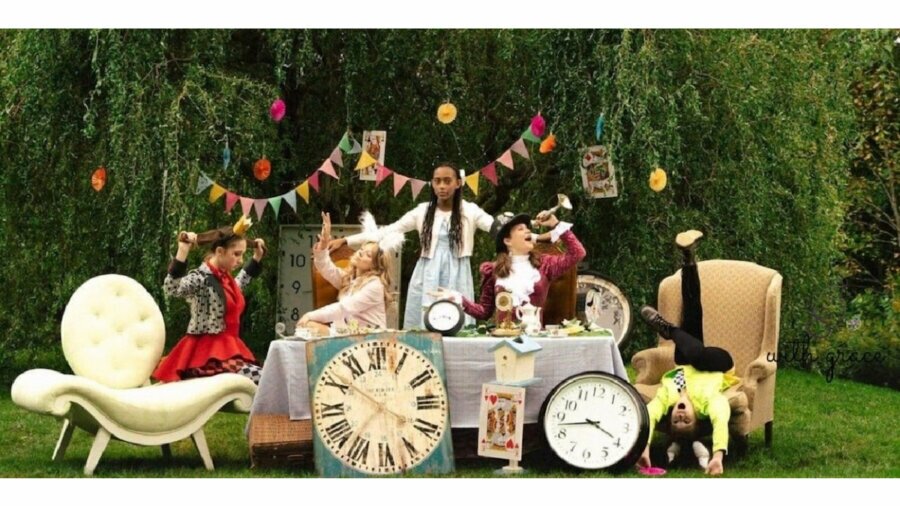
 Fall into young Canadian filmmaker Arianna Goarley’s gutsy and gleeful creative cavern as she invokes the wonders of ADHD paired with the world’s most renowned Alice. Her film, The Tea Party, is an Alice in Wonderland-inspired narrative short that explores ADHD and how it manifests in a young person’s life.
Fall into young Canadian filmmaker Arianna Goarley’s gutsy and gleeful creative cavern as she invokes the wonders of ADHD paired with the world’s most renowned Alice. Her film, The Tea Party, is an Alice in Wonderland-inspired narrative short that explores ADHD and how it manifests in a young person’s life.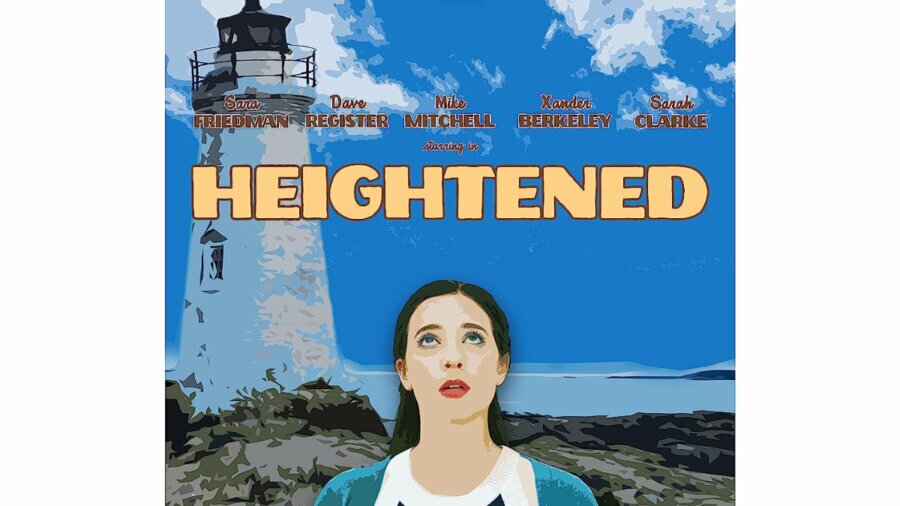
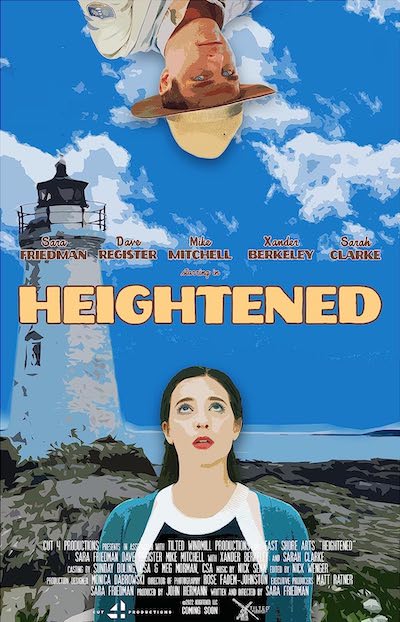 In a world where mental health is often stigmatized and misunderstood, the writer and director of “Heightened,” Sara Friedman, takes viewers on a transformative journey. The film, which is part of the 2023 Dances with Films festival, dives into what it is like to live with anxiety and borderline obsessive-compulsive disorder. As we are introduced to Nora, also portrayed by Sara Friedman, we witness the challenges she faces and the pivotal moment that catapults her onto a path of self-discovery.
In a world where mental health is often stigmatized and misunderstood, the writer and director of “Heightened,” Sara Friedman, takes viewers on a transformative journey. The film, which is part of the 2023 Dances with Films festival, dives into what it is like to live with anxiety and borderline obsessive-compulsive disorder. As we are introduced to Nora, also portrayed by Sara Friedman, we witness the challenges she faces and the pivotal moment that catapults her onto a path of self-discovery.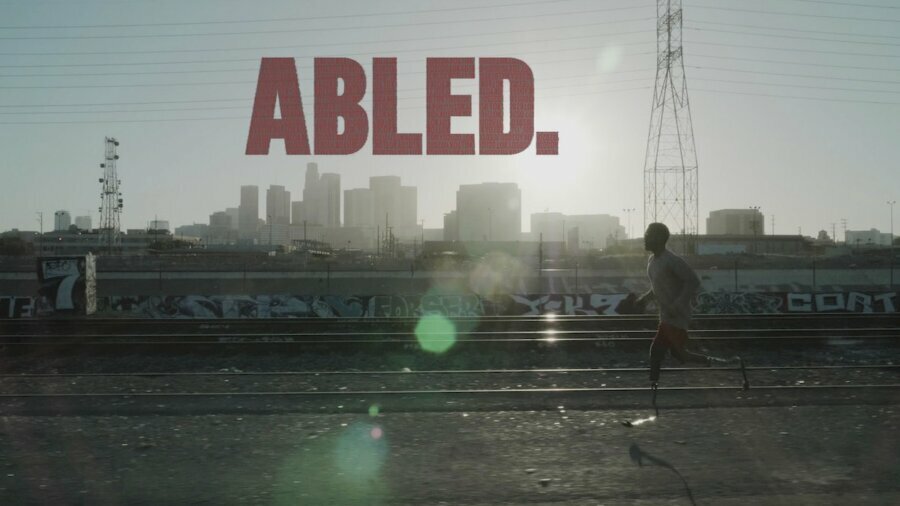
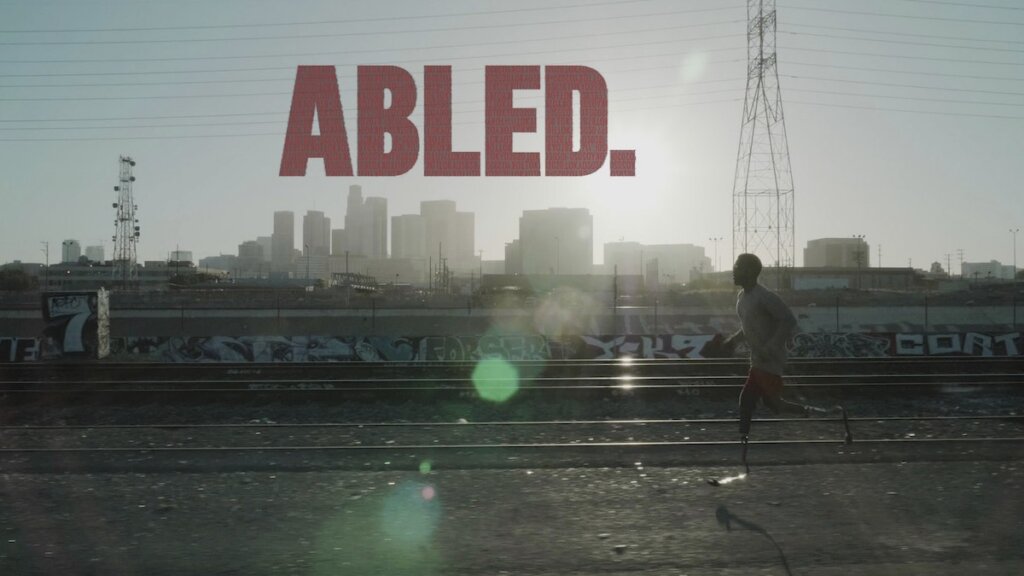 Abled is an inspirational film but it is not inspiration porn. This documentary, which is part of the 2023 Dances with Films festival, follows Paralympian Blake Leeper training for the 2020 Tokyo Olympic and Paralympic Games while he is in a legal battle with the World Athletics on whether his prosthetic legs give him an advantage. He is a 400-meter runner who competed in both disabled and nondisabled spaces throughout college and into his professional career, until he ran 400-meters in under 45 seconds. Once he crossed the 45 seconds line, he was on par with any world class nondisabled runner, and World Athletics claimed that he was technologically doping. However, the organization did not need to prove that claim; instead, they shifted the burden of proof to Leeper; he had to prove that the prosthetics did not give him an advantage. He had to disprove ableist assumptions rather than the institution having to back up its ableist thinking. This documentary shows Leeper trying to prove that his advantage comes from hard work and dedication, not his equipment.
Abled is an inspirational film but it is not inspiration porn. This documentary, which is part of the 2023 Dances with Films festival, follows Paralympian Blake Leeper training for the 2020 Tokyo Olympic and Paralympic Games while he is in a legal battle with the World Athletics on whether his prosthetic legs give him an advantage. He is a 400-meter runner who competed in both disabled and nondisabled spaces throughout college and into his professional career, until he ran 400-meters in under 45 seconds. Once he crossed the 45 seconds line, he was on par with any world class nondisabled runner, and World Athletics claimed that he was technologically doping. However, the organization did not need to prove that claim; instead, they shifted the burden of proof to Leeper; he had to prove that the prosthetics did not give him an advantage. He had to disprove ableist assumptions rather than the institution having to back up its ableist thinking. This documentary shows Leeper trying to prove that his advantage comes from hard work and dedication, not his equipment.

